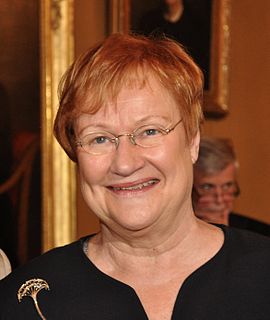A Quote by Jack Ma
I think globalization is a great thing. And now a lot of people complain about globalization; a lot of people don't like, you know, the globalize of the concept, the idea of the results. I think the globalization is a great idea and to create a lot of jobs.
Related Quotes
I think that the movement against the World Bank, against the globalization process that is happening, is very positive. We need a globalization, a globalization of people who are committed to social justice, to economic justice. We need a globalization of people who are committed to saving this earth, to making sure that the water is drinkable, that the air is breathable.
Donald Trump understands sense of belonging. And a lot of people think globalization, any time you make any particularity, you're sort of offending some other group. And a lot of people in this country think they belong to America anymore, and he at least appeals to some sense of belonging. I like the idea that we belong to Western traditions, so I'm glad he appeals to that sort of thing.
Globalization has become an ideology with no constraints. And now, nations are forcing themselves back into the debate. Nations with borders we control, with people that we listen to, with real economies, not Wall Street economies, but rather factories and farmers. And this goes against this unregulated globalization, wild, savage globalization.
I think the twenty-first century happened, basically. That this century started on 9/11. And basically, it's been a century of counter reaction to globalization and the meritocracy. And a good century for 72 nations have gotten more authoritarian. We've had Brexit. We have Le Pen rising in France. We've just got a lot of these types all around the world. And the people who are suffering from globalization and the meritocracy are saying, "No more. You know, we get a voice too."
Is Islam a tribe or is it a force of globalization? Islam has certainly been studied as a local, tribalistic phenomenon. But Islam is also theoretically a universalist idea, its spread has been facilitated by modern technologies, and it's an identity that people can slip into and out of fairly easily. I don't think Islam has really been understood as a product of globalization. It might be one of these instances where globalism and tribalism ultimately go hand in hand.
Especially now, the immigrant problem is very dramatic around the world. Because we don't know what to do with them. They're in economic crisis, and there are more and more. There will be more and more. We speak about globalization of economy, but it's also globalization for immigration. Millions of people, they're willing to have a better life. A better life, they cannot have it where they live, so they move.
Most of the time the concept of globalization ends up sounding unnecessarily abstruse - even the name itself sounds clunky and highfalutin. And people discuss it in a way that makes it seem so impersonal. But globalization really is a concrete, fundamental fact in everybody's lives, and you really see that come to life in soccer stadiums.































